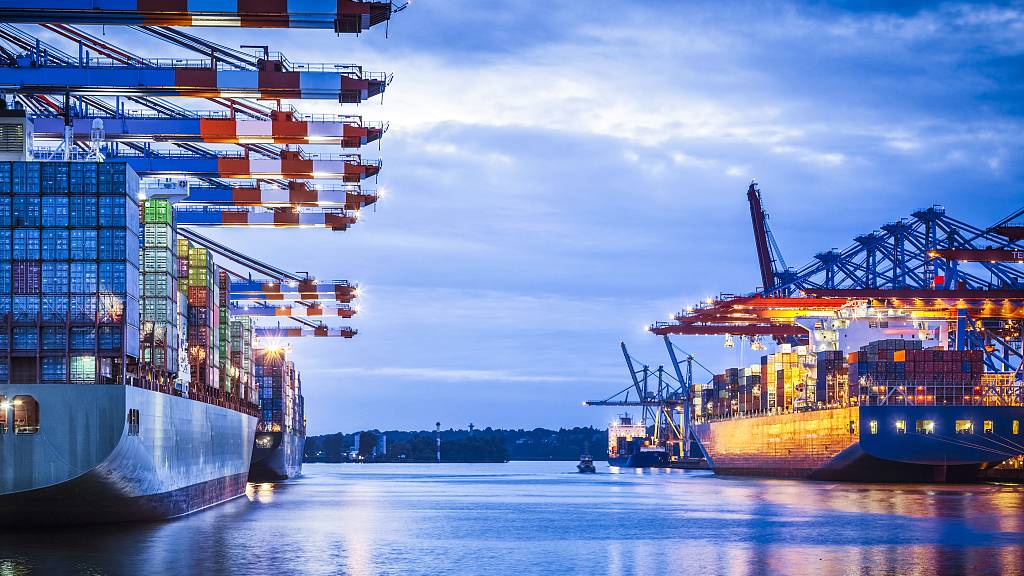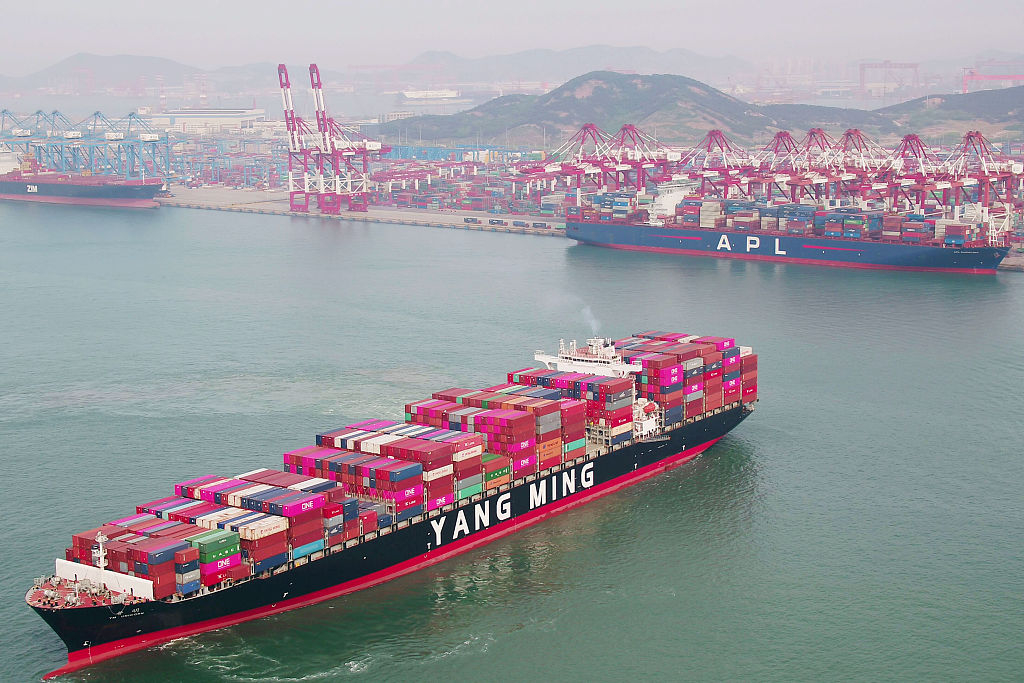
Economy
21:02, 14-May-2019
Goldman Sachs: U.S. companies and consumers will pay for tariff costs
Hu Binyi
00:38

U.S. President Donald Trump has imposed a tariff hike from 10 to 25 percent on 200 billion U.S. dollars worth of Chinese imports, while many indicators point in the opposite direction. Banking Giant Goldman Sachs said the damage has fallen entirely on the U.S., pointing to higher consumer prices.
A fresh report from the firm said that the tariff costs will finally shift to American companies and families. That's because Chinese exporters haven't lowered their prices to be more competitive in the U.S. market. The report showed that upgraded trade frictions may lead to a 0.4 percent decline in the U.S. GDP.
Meanwhile, China is raising tariffs on more than 5,000 U.S. products, and some will be tariffed at 25 percent up from 10 percent to respond to U.S. moves. The retaliatory tariffs hurt American farmers, who have been relying on the vast Chinese consumer market for revenues, especially soybean farmers who suffer the most. The Chicago Board of Trade soybean futures closed at the lowest level in more than 10 years this Monday.

VCG Photo
VCG Photo
Some U.S. non-profit industrial associations have strongly protested against the tariffs that America has imposed on Chinese goods as they said they will hurt domestic farmers, enterprises and consumers. An organization even calculated the costs brought on by the tariffs which exceeded more than 26 billion U.S. dollars.
Goldman's report also showed that the American economy will be further dragged if investors dump in the stock market. The Dow Jones Industrial Average and the S&P 500 both fell more than 2 percent, with tech stocks feeling the largest impact since they do a lot of business with China.
The stock market and soybean futures aren't the only sectors taking a hit. Since China and the U.S. are the world's two biggest economies, their trade tension not only impacts both countries but also plunges the rest of the world into uncertainties and economic growth slowdown.

SITEMAP
Copyright © 2018 CGTN. Beijing ICP prepared NO.16065310-3
Copyright © 2018 CGTN. Beijing ICP prepared NO.16065310-3